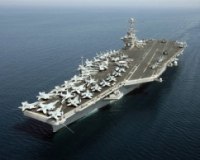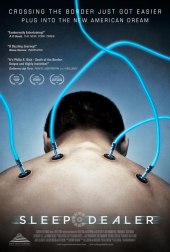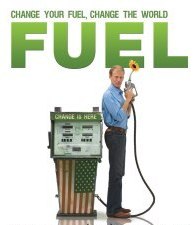| About Us | Contact Us | Calendar | Publish | RSS |
|---|
|
Features • latest news • best of news • syndication • commentary Feature Categories IMC Network:
Original Citieswww.indymedia.org africa: ambazonia canarias estrecho / madiaq kenya nigeria south africa canada: hamilton london, ontario maritimes montreal ontario ottawa quebec thunder bay vancouver victoria windsor winnipeg east asia: burma jakarta japan korea manila qc europe: abruzzo alacant andorra antwerpen armenia athens austria barcelona belarus belgium belgrade bristol brussels bulgaria calabria croatia cyprus emilia-romagna estrecho / madiaq euskal herria galiza germany grenoble hungary ireland istanbul italy la plana liege liguria lille linksunten lombardia london madrid malta marseille nantes napoli netherlands nice northern england norway oost-vlaanderen paris/Île-de-france patras piemonte poland portugal roma romania russia saint-petersburg scotland sverige switzerland thessaloniki torun toscana toulouse ukraine united kingdom valencia latin america: argentina bolivia chiapas chile chile sur cmi brasil colombia ecuador mexico peru puerto rico qollasuyu rosario santiago tijuana uruguay valparaiso venezuela venezuela oceania: adelaide aotearoa brisbane burma darwin jakarta manila melbourne perth qc sydney south asia: india mumbai united states: arizona arkansas asheville atlanta austin baltimore big muddy binghamton boston buffalo charlottesville chicago cleveland colorado columbus dc hawaii houston hudson mohawk kansas city la madison maine miami michigan milwaukee minneapolis/st. paul new hampshire new jersey new mexico new orleans north carolina north texas nyc oklahoma philadelphia pittsburgh portland richmond rochester rogue valley saint louis san diego san francisco san francisco bay area santa barbara santa cruz, ca sarasota seattle tampa bay tennessee urbana-champaign vermont western mass worcester west asia: armenia beirut israel palestine process: fbi/legal updates mailing lists process & imc docs tech volunteer projects: print radio satellite tv video regions: oceania united states topics: biotechSurviving Citieswww.indymedia.org africa: canada: quebec east asia: japan europe: athens barcelona belgium bristol brussels cyprus germany grenoble ireland istanbul lille linksunten nantes netherlands norway portugal united kingdom latin america: argentina cmi brasil rosario oceania: aotearoa united states: austin big muddy binghamton boston chicago columbus la michigan nyc portland rochester saint louis san diego san francisco bay area santa cruz, ca tennessee urbana-champaign worcester west asia: palestine process: fbi/legal updates process & imc docs projects: radio satellite tv |
Media:
previous page 2 next page |
single feature archives |
weekly archives
Like the original Transformers movie of 2007, Transformers 2 is unapologetic about its role as a recruiting tool (as discussed in this
commentary from CAMS (Coalition for Alternatives to Militarism in Our Schools) and in this critique from the Newswire:
"This weekend I saw the new Michael Bay film. The only thing that deserves prominence in TRANSFORMERS 2 is the careful valorization of military disobedience. . . . [M]ilitarism is a terrible phenomenon which is reinforced in all of the social institutions. Media and culture can turn create slaves faithful of the military values. Is that not what happened in Nazi Germany?" Full story: TRANSFORMERS 2 by Fabio de Oliveira Ribeiro
The film is set sometime in the future and concerns Memo Cruz (Luis Fernando Pena), whose Oaxacan village is strangled by water privatization and U.S. military intervention via drone airplanes. Memo must find work in the north, but physically entering the U.S. is no longer possible: the border has finally become impenetrable. Instead, he is hooked up to a virtual reality system in Tijuana, where he controls a robot at an American construction site. (Mexican workers manipulate robots at other distant locations, too, including slaughterhouses.)
At a recent preview, director Alex Rivera remarked: "It's amazing to me how things that five years ago would seem surreal, or would seem like it should be in a movie and be bizarre or disgusting, or things that were in a movie called Terminator--this idea of robot warfare--that used to be science fiction, and now there it is in the news, not even on the front page anymore," Rivera said. "We become so accustomed to it, but I'm hoping this movie makes some of those things ugly and bizarre again and that we can talk about it." Full story: Alex Rivera Discusses His Film Sleep Dealer by RP I thought Fuel was very well-made, important, and informative--there's a lot to absorb. I don't agree with every point of view expressed in the film, but I realize the movie has to communicate to diverse people. . . . Still, the movie features a lot of provocative ideas like vertical farms (skyscraper-like farms that would exist in the middle of cities and other places where space is scarce), and there is some great historical information. For example, details of Rudolf Diesel's sudden and very suspicious death is discussed as well as the long and insidious history of Standard Oil (which was broken up 100 years ago but is now reunited as Exxon-Mobil). Also, a compelling case is made that Prohibition was really about stopping a car that Ford put out that ran on ethanol. As soon as Ford gave up on this car, Prohibition was lifted.
. . . I was glad to see depictions of monorails in the film (though they're never discussed). I think they could be a solution to some of our problems (at least until our population crisis is dealt with--if it is ever dealt with), as they have been in other countries for a century. . . . Article: "Fuel" (review) by RP
Humble Beauty is an hour documentary that tells the story of talented homeless and formerly homeless men and women who, despite a daily struggle for survival, paint and create art in the worst area of Los Angeles known as Skid Row. People will make art, no matter how humble the circumstances.
The film includes spontaneous moments plus intimate interviews with oil, acrylic and watercolor painters, charcoal, pen & crayon sketchers, collage makers and paper mache sculptors. Some artists find their art supplies in garbage cans and dumpsters. They draw on old paper bags. Article: HUMBLE BEAUTY: Skid Row Artists Documentary by Letitia Schwartz & Judith Vogelsang Photos:HUMBLE BEAUTY photos by Letitia Schwartz & Judith Vogelsang DVD Cover: HUMBLE BEAUTY DVD cover Australia seems to be far ahead of the U.S. in terms of producing science fiction movies with content. Alien Visitor (originally released as Epsilon in 1997) makes blunt statements about our civilization's disregard for nature and the environment. One reason why such a film is possible in Australia may be because that country has already begun to feel the impact of our pollution (the same reason why permaculture caught on there much sooner).
Review: I Wish More Science Fiction Films Were Like This by RP Media: previous page 2 next page | single feature archives | weekly archives |



 Militarism Remains Alive and Well in Summer Movies
Militarism Remains Alive and Well in Summer Movies Alex Rivera Discusses His Film Sleep Dealer
Alex Rivera Discusses His Film Sleep Dealer "Fuel" (Review)
"Fuel" (Review) HUMBLE BEAUTY: Skid Row Artists Documentary
HUMBLE BEAUTY: Skid Row Artists Documentary I Wish More Science Fiction Films Were Like This
I Wish More Science Fiction Films Were Like This